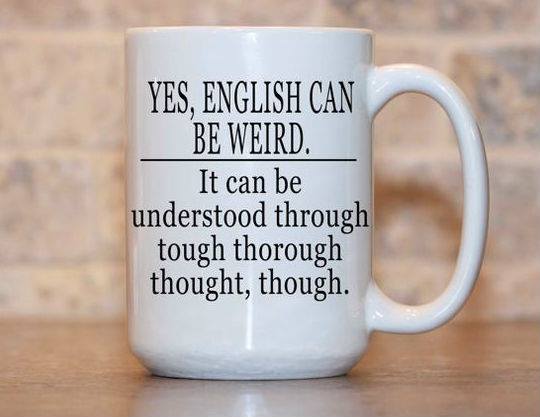
|
Divided by our Common Heritage |
Home Contents |

Pyotr Ilyich Chaikovsky in English
Piotr Ilich Chaikovski in Spanish
Piotr Ilitch Tchaïkovski in French
Piotr Ilic Ciaikovski in Italian
Pjotr Iljitsch Tschaikowski in German
Pjotr Iljitj Tjajkovskij in Swedish
Piotr Iljicz Czajkowski in Polish
Petr Iljič Čajkovskij, in Czech
and so on. No two languages write his name the same way, even though they all pronounce it more or less the same.
And yet all these languages are written in the "same" Latin alphabet. This alphabet is by far the world's most used, with 5 billion readers, twice as many readers as the next three combined (Chinese, Arabic and Devanagari).

But what does it mean to say that we all use the same alphabet, if the same letters don't stand for the same sounds? In English and French, the letter c normally represents a k sound as in decade and soccer, but sometimes it's an s sound as in facade and saucer (and on Yuri Gagarin's helmet at left). In Spanish, c stands for a th sound. In Polish, Czech, Chinese and German, c stands for a ts sound. In Italian, Romanian and Malay, c stands for a ch sound as in ciao. In Turkish and Azeri, c stands for a dj sound. And it originally stood for the g sound, as in gamma. In other words, lots of languages have a c, but there's no agreement on what sound it stands for.
Likewise, the letter j might represent a dj as in English John, a y as in German Johann, a zh as in French Jean, or a kh as in Spanish Juan. The letter x might represent a ks sounds as it does in English, Dutch and German, or a sh sound as it does in Chinese, Vietnamese, Portuguese and Catalan; in IPA or romanization, x often represents a kh sound. And there's even less agreement on vowels: just consider the a's in English alp alms all ale alive. The French city Foix and the Catalan river Foix look like they have the oi sound as in English foil and the ks sound as in English fox, but neither of them have either sound! (They're pronounced fwa and fosh.)

All over the Latin-alphabet world, people get a good laugh at the way that foreigners pronounce local names. In Paris, tourists can't ask how to get to Reims, which begins with a guttural sound and then rhymes with lass. Visiting Germany, they pronounce München like Oz's Munchkin without the k. They mangle Spain's Gijón, Sweden's Göteborg, England's Gloucester, and names like Dutch Schuiten, Polish Przemysław, American Arkansas and Chinese Qiū Xiăochén. Some of those names really are hard to pronounce, but unfamiliar spelling doesn't help.
The real problem is that the Latin alphabet just isn't very good. It's missing letters for common sounds, so languages have to recycle (like this versus thin in English), add complicated rules, or add accents, new letters, or digraphs like ch or ng. Despite missing letters, they often have silent letters or duplicate letters for the same sound. Several languages, like English and French, also retain historical spellings even when pronunciations have changed, or import unfamiliar spellings from other languages. The result is a giant hodge-podge, with 1350 letters in Unicode, the standard computer encoding. Each letter comes in UPPER and lower cases, and often different cursive or handwritten forms. Even keyboards are different in different countries. It's as if they're trying to make reading and writing as difficult as possible.

English has become the world's common language, and everyone wants to learn it. But English spelling is among the craziest in the world, with "rules" that work only some of the time. It's just as hard for native English speakers, who have to spend three extra years of school just to get to the same level of literacy as others. Three years! If just the English speakers fixed their spelling, they'd get an additional three years of education and make things easier for the rest of us.
But that isn't as easy as it sounds. People have been trying to fix the Latin alphabet, and English spelling in particular, for years with no success. The problem is that we want to change as little as possible, because we already know this alphabet. Bët it tïrnz áwt dhat dhe rezëlts árnt vèri femìljïr. And of course, using a "fixed" Latin alphabet isn't appealing to the half of the world who doesn't use it now.
But now there is a practical solution: a completely new alphabet called Musa. It has all the letters we need for all our languages, but it uses only 26 shapes, including punctuation and numerals. Vowels each use one of these shapes, and consonants combine two of them into a tall letter. Because each shape represents a feature of the sound, letters that sound alike also look alike, and the system is easy to learn.
Why not take a look?
| © 2002-2025 The Musa Academy | musa@musa.bet | 23sep24 |